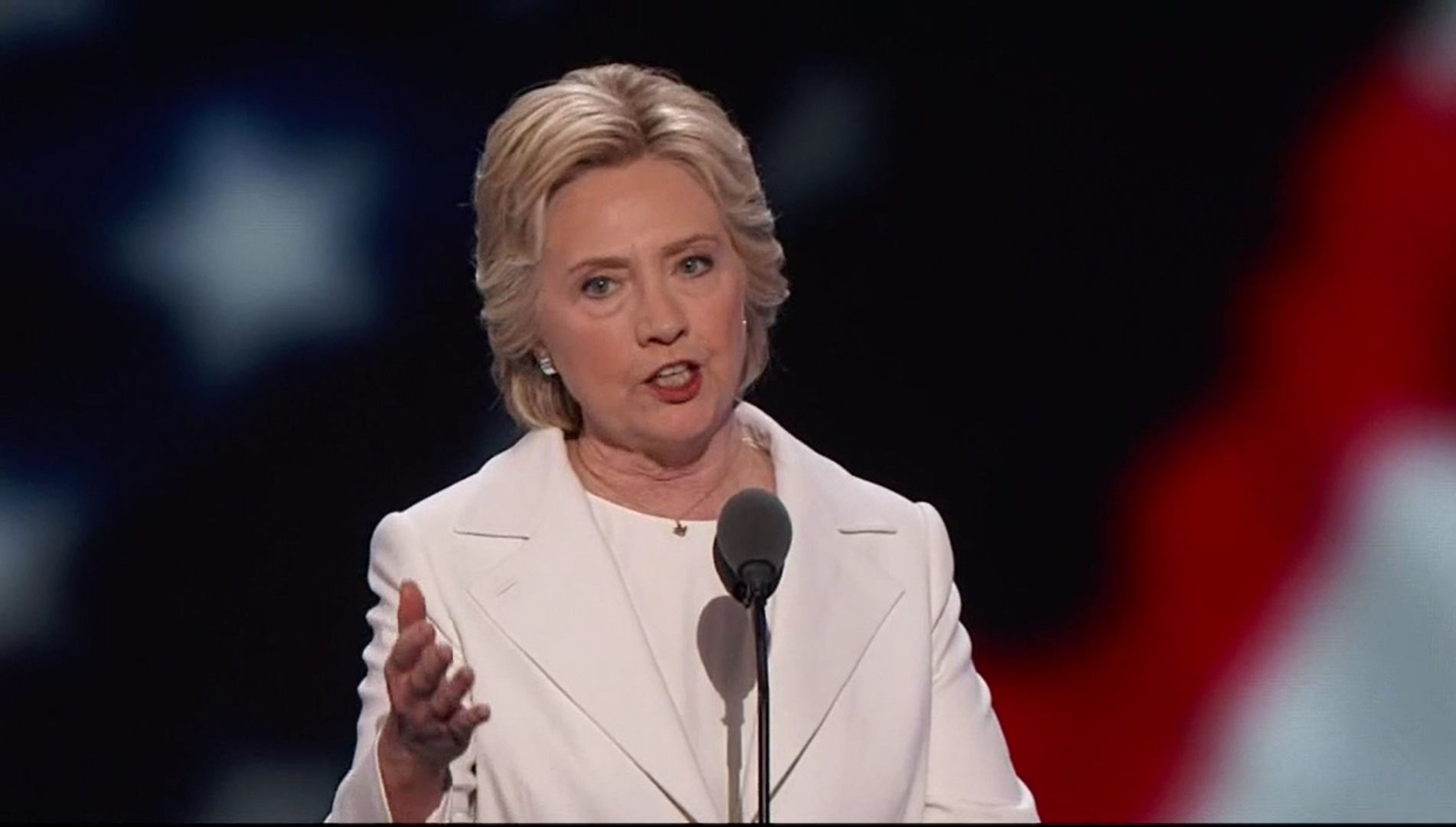As Donald Rumsfeld might have put it, “You go with the nominee you have, not with the nominee you might want.” Based on the speech she delivered Thursday night—the biggest of her life—Hillary Clinton and her campaign have decided that she will win or lose based on the strengths and weaknesses that have characterized her for decades. In the end, Clinton failed to transcend that issue. You, the voters, she seemed to say, simply have to accept me as I am in all my pedestrian earnestness—especially if the choice is between me and Donald Trump.
The question leading up to Clinton’s acceptance speech was straightforward: Would she cast off the language of an army of pollsters, consultants, and focus-group research? Would she boldly take ownership of the distrust with which two-thirds of Americans now view her? Find a theme to connect the raft of (often admirable) policy proposals that provide her answers to a country whose confidence in the future has been seriously eroded?
The answer was no. After four nights of increasingly effective stagecraft—after a night punctuated by powerful assaults on her opponent (will anyone forget the father of a slain Muslim soldier offer a copy of the Constitution to Donald Trump?)—Clinton came out with a speech that read as if it took a village of writers, consultants, and pollsters to hammer out lines that were overwhelmingly too clever by half. […]
And by the end, Clinton’s acceptance speech was a cacophony of cliché on cliché: Yes, America’s destiny is ours to choose. So let’s be stronger together. … “Looking to the future with courage and confidence. Building a better tomorrow.”
For all of that, there were telling moments, effective moments that—not coincidentally—abandoned flowery words for sharper, clear declarations, particularly in her takedown of Donald Trump.
